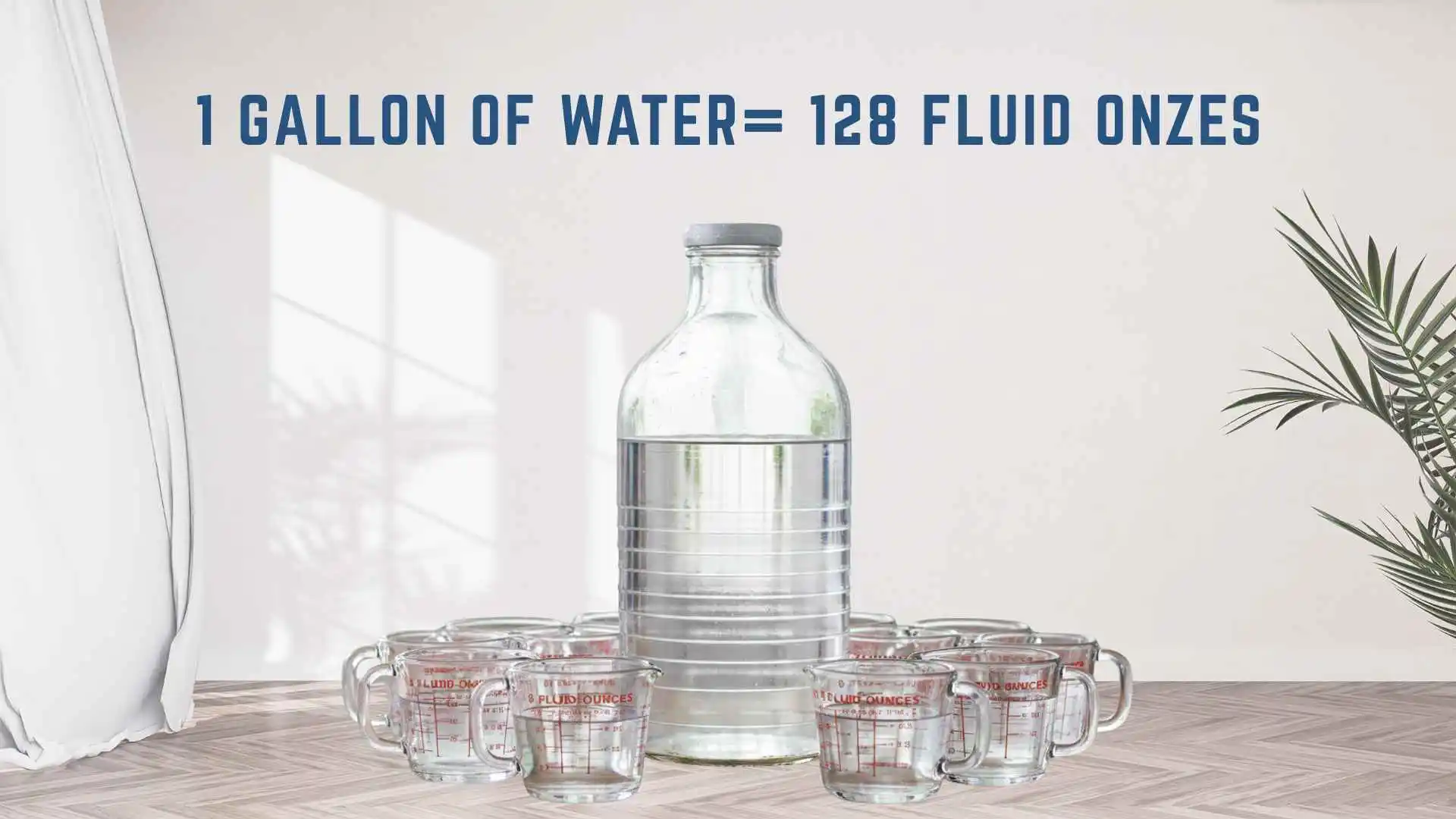Ever stood in your kitchen, holding a gallon of water, wondering how many ounces are actually inside this thing?
You’re not alone. Whether you’re following a recipe, tracking your daily water intake, or doing a science project, understanding how ounces in a gallon work is essential for accuracy.
Let’s break it all down—fluid ounces, gallons, conversions, charts, and even bottle comparisons—so you’ll never have to guess again.
Understanding the Basics of Liquid Measurement
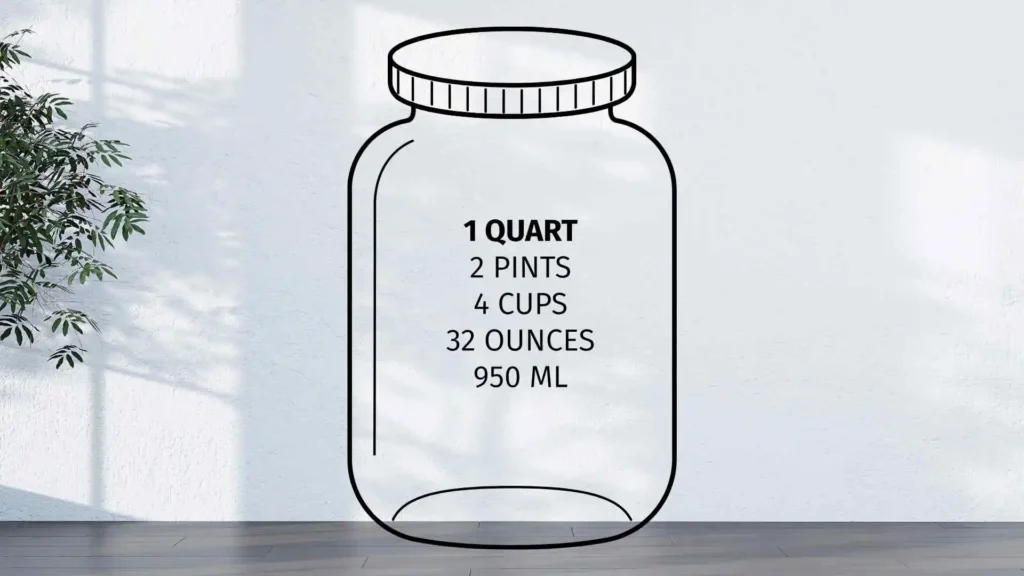
Before jumping straight into conversions, it helps to know what we’re actually measuring.
What is an Ounce?
An ounce (oz) is a small unit used to measure both weight and volume—depending on whether it’s a dry ounce or a fluid ounce.
- A dry ounce measures weight (like flour or sugar).
- A fluid ounce (fl oz) measures volume (like water, milk, or oil).
💡 Quick Tip: Always check the label. “Fl oz” means volume; “oz” alone usually means weight.
What is a Gallon?
A gallon (gal) is a larger unit of volume measurement in the U.S. customary units. It’s often used to measure liquids like milk, water, or gasoline. However, gallons aren’t the same everywhere — there’s a U.S. gallon and an Imperial gallon (used in the UK and some other countries).
Volume Measurement Hierarchy
To truly understand how fluid ounces in a gallon work, it helps to see how the units are related:
| Unit | Equivalent in Next Unit | Conversion Formula |
| 3 teaspoons | 1 tablespoon | 1 tbsp = 3 tsp |
| 16 tablespoons | 1 cup | 1 cup = 16 tbsp |
| 2 cups | 1 pint | 1 pt = 2 cups |
| 2 pints | 1 quart | 1 qt = 2 pt |
| 4 quarts | 1 gallon | 1 gal = 4 qt |
This simple flow shows that a gallon holds a lot more than most people realize.
The Exact Conversion: How Many Ounces Are in a Gallon?
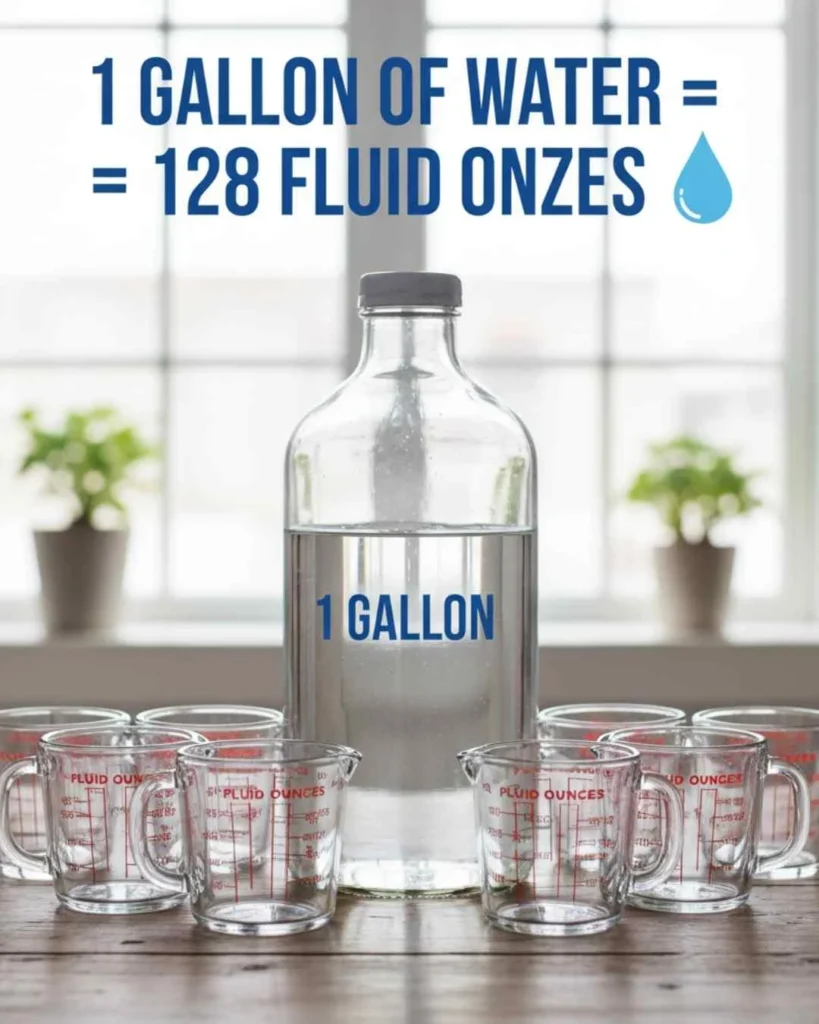
Now for the main answer:
👉 1 U.S. gallon = 128 fluid ounces (fl oz)
That’s the golden rule of gallon to ounces conversion. It applies to water and other liquids with the same density.
Formulas for Quick Conversion
- To convert gallons to ounces:
Ounces = Gallons × 128 - To convert ounces to gallons:
Gallons = Ounces ÷ 128
Examples
- ½ gallon = 64 ounces
- ¼ gallon = 32 ounces
- 2 gallons = 256 ounces
- 5 gallons = 640 ounces
Here’s a quick conversion table you can reference:
| Gallons | Ounces (fl oz) |
| ¼ | 32 |
| ½ | 64 |
| 1 | 128 |
| 2 | 256 |
| 3 | 384 |
| 5 | 640 |
🧮 Conversion Formula: Number of fluid ounces = Number of gallons × 128
U.S. Gallons vs. Imperial Gallons
Here’s where things get tricky — not all gallons are equal.
The U.S. Gallon
- 1 U.S. gallon = 128 fluid ounces
- 1 U.S. gallon = 3.785 liters
The Imperial Gallon (U.K.)
- 1 Imperial gallon = 160 fluid ounces
- 1 Imperial gallon = 4.546 liters
| System | Gallon (fl oz) | Liter Equivalent | Region |
| U.S. Customary | 128 | 3.785 | United States |
| Imperial | 160 | 4.546 | United Kingdom, Canada (some uses) |
🧠 Fact: The word “gallon” originates from Old French “galon” and Latin “gallo,” meaning a liquid container.
So if you’re using a U.K. recipe, the gallon measurement could differ by nearly 25% more liquid than a U.S. one!
Converting Gallons into Other Units
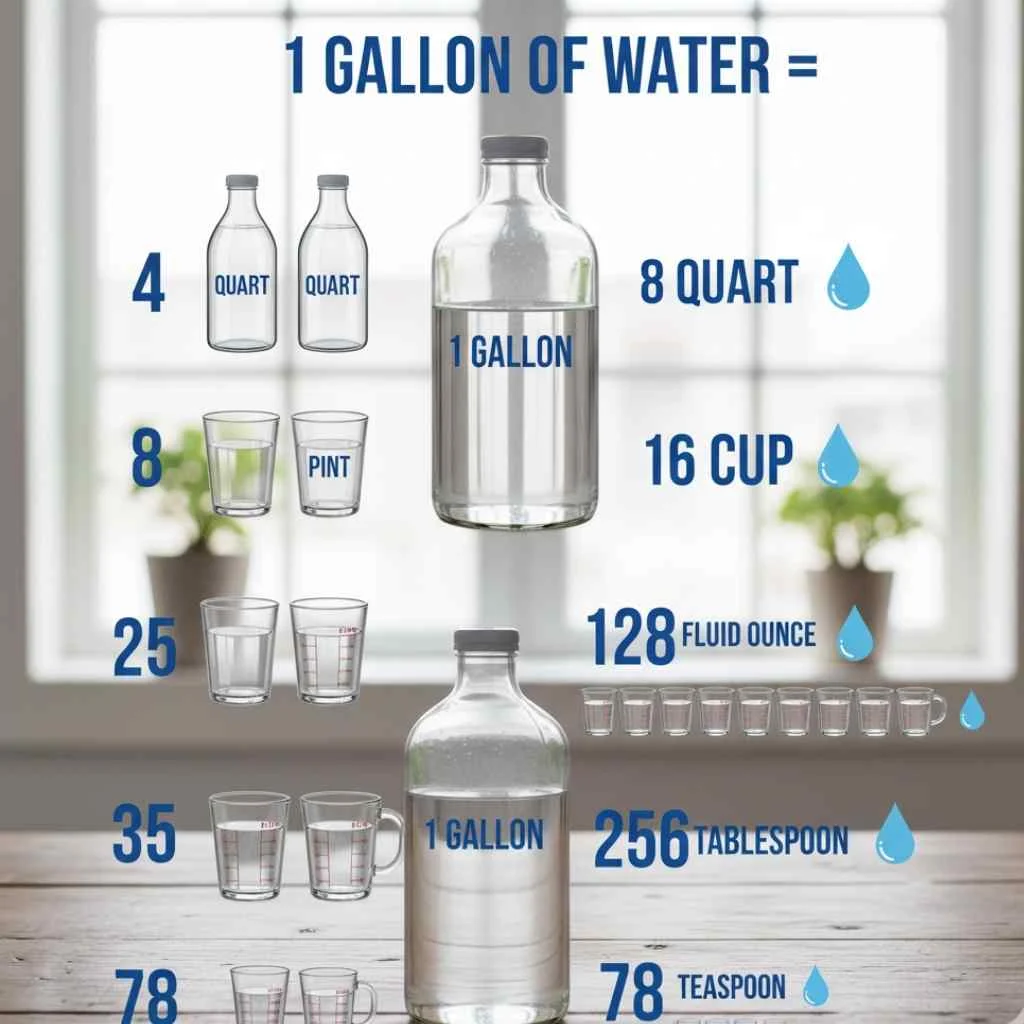
To make conversions simpler, let’s look at how gallons relate to smaller units:
1 gallon =
- 4 quarts
- 8 pints
- 16 cups
- 128 fluid ounces
- 256 tablespoons
- 768 teaspoons
Visual Conversion Ladder
1 Gallon
├── 4 Quarts
│ ├── 8 Pints
│ │ ├── 16 Cups
│ │ │ ├── 128 Fluid Ounces
│ │ │ │ ├── 256 Tablespoons
│ │ │ │ └── 768 Teaspoons
📏 This structure is useful when scaling recipes or converting kitchen measurements.
Practical Everyday Conversions: Bottles, Cups, and Liters
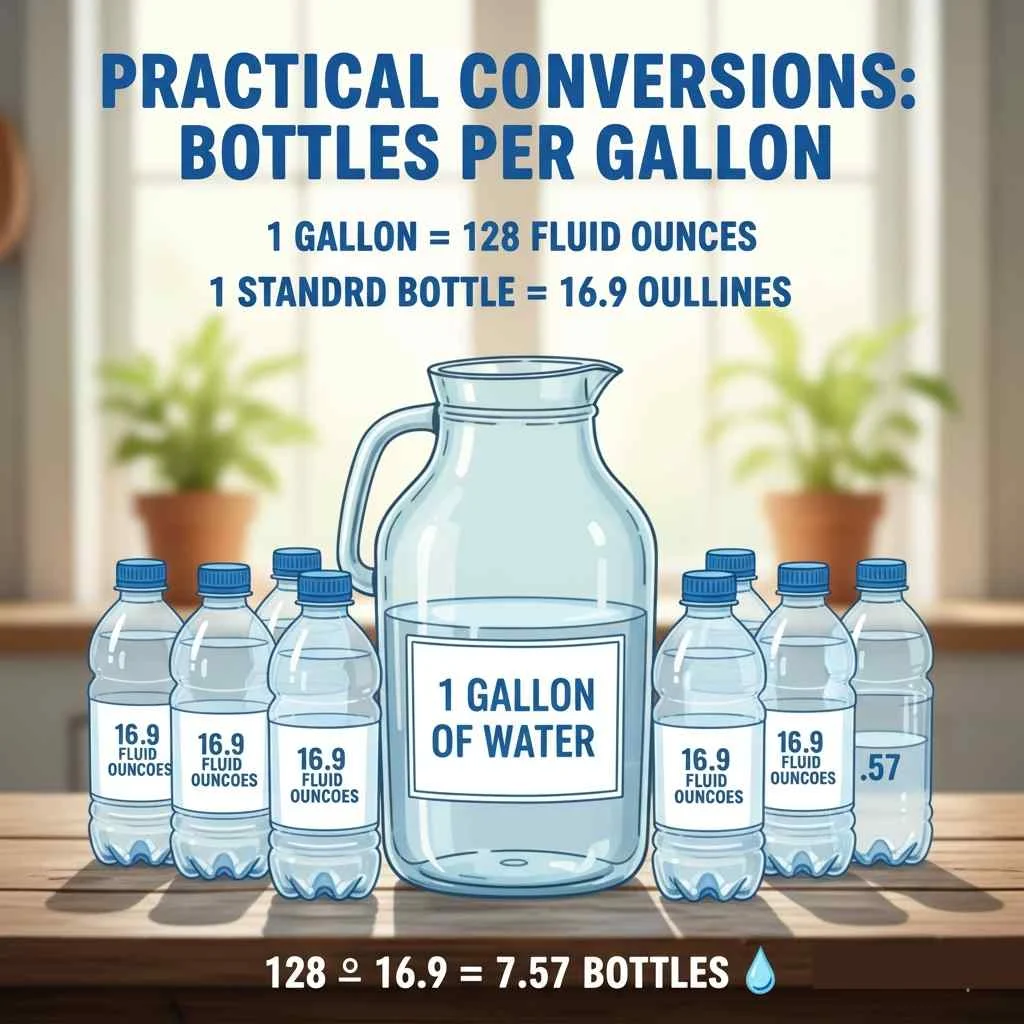
You might not carry a measuring cup everywhere, but you probably carry a water bottle.
How Many Bottles of Water in a Gallon?
- A standard water bottle holds 16.9 fluid ounces.
- Divide 128 (oz in a gallon) by 16.9 → 7.57 bottles per gallon.
So, to drink one gallon a day, you’ll need about 8 bottles.
How Many Cups in a Gallon?
- 1 gallon = 16 cups
- ½ gallon = 8 cups
How Many Liters in a Gallon?
- 1 U.S. gallon = 3.785 liters
| Measurement | Equivalent in Gallons | Notes |
| 1 Bottle (16.9 fl oz) | 1/7.57 gallon | Standard single-use bottle |
| ½ Gallon | 64 fl oz | Common hydration target |
| 1 Liter | 0.26 gallon | Used in metric countries |
| 5 Gallons | 640 fl oz | Common large water container |
💧 Tip: Many people use 64 oz (half gallon) as their daily hydration goal — that’s about 4 bottles of water.
Fluid Ounces vs. Dry Ounces: Key Differences
A common misconception is that fluid ounces and dry ounces are interchangeable — they’re not.
Fluid Ounces
- Measure volume
- Used for liquids like water, juice, or milk
- Measured with a measuring cup
Dry Ounces
- Measure weight
- Used for solids like flour, rice, or sugar
- Measured with a kitchen scale
| Measurement Type | Tool | Unit Example | Use Case |
| Fluid Ounce | Measuring cup | fl oz | Liquids |
| Dry Ounce | Kitchen scale | oz | Solids |
⚖️ Example: 1 cup of flour and 1 cup of water don’t weigh the same — because flour is lighter and less dense.
Conversion Formulas and Examples (Step-by-Step)
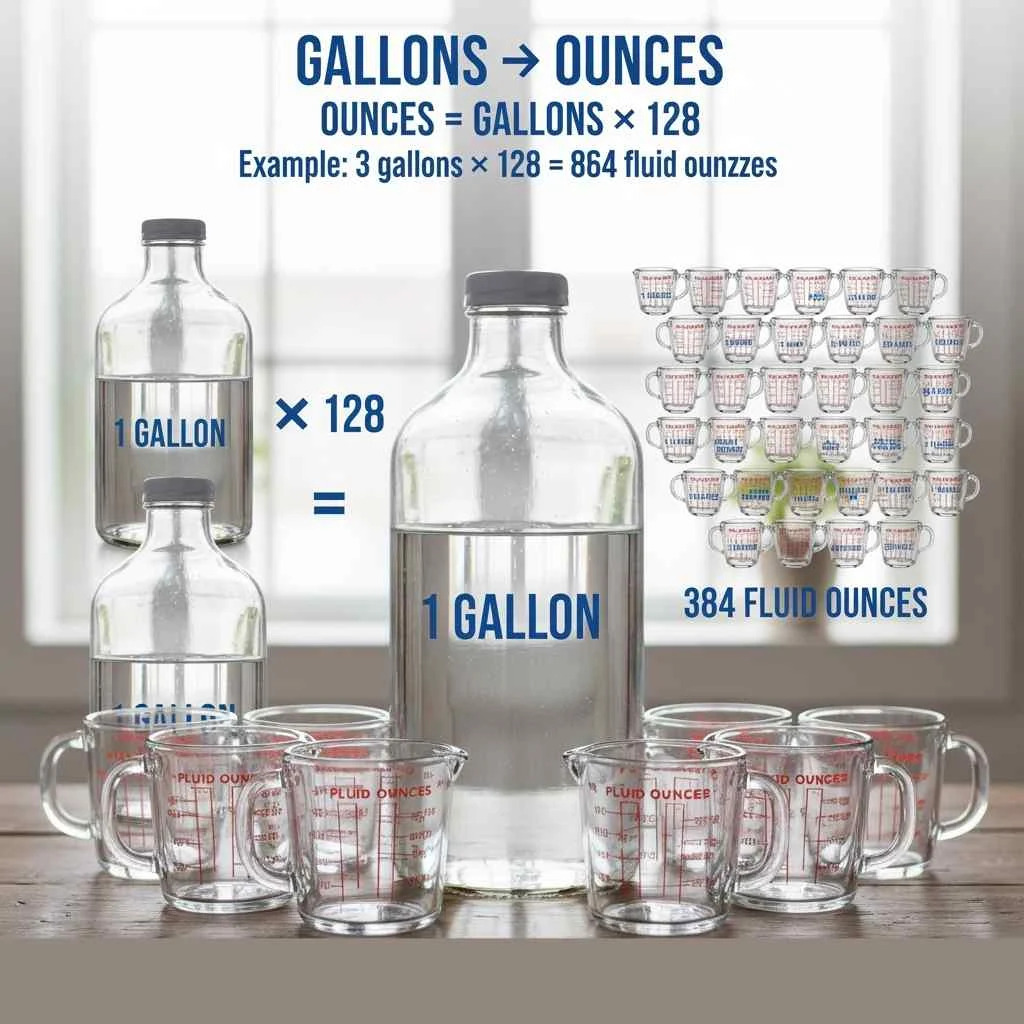
Let’s put these formulas into action.
Formula 1: Gallons → Ounces
Ounces = Gallons × 128
Example:
3 gallons × 128 = 384 fluid ounces
Formula 2: Ounces → Gallons
Gallons = Ounces ÷ 128
Example:
640 ÷ 128 = 5 gallons
Quick Mental Tips:
- Half a gallon = 64 oz (easy hydration goal)
- Quarter gallon = 32 oz
- 10 gallons = 1,280 oz
Measuring Water Accurately
When accuracy matters — like in recipes or hydration tracking — precision makes all the difference.
Tools for Measuring Liquids
- Measuring Cup: Ideal for kitchen use
- Kitchen Scale: Converts weight to volume for dry goods
- Digital App or Smart Bottle: Tracks water intake
Pro Tips
- Always measure at eye level — don’t guess by looking down.
- Use clear containers with volume markings.
- Remember that temperature affects density — warm water expands slightly.
💬 Quote: “Measure twice, pour once — because precision isn’t just for science, it’s for flavor too.”
Metric Conversions: Gallons to Liters and Milliliters
If you’re working with metric measurements, here’s how to convert:
Conversion Formulas
- 1 U.S. gallon = 3.785 liters
- 1 U.S. gallon = 3,785 milliliters (ml)
| Gallons | Liters | Milliliters |
| ½ | 1.893 | 1,893 |
| 1 | 3.785 | 3,785 |
| 2 | 7.570 | 7,570 |
| 5 | 18.927 | 18,927 |
🌍 Fact: Most international recipes use liters or milliliters, so knowing these conversions helps prevent costly mistakes.
Historical and Linguistic Origins of “Gallon”
The term “gallon” has a fascinating history:
- Originates from the Old French word “galon”
- Derived from the Latin “gallo”, meaning container or vessel
- The measurement evolved through wine trade and grain transport in medieval Europe
Different countries adapted the “gallon” to their own systems, which is why the U.S. gallon and Imperial gallon differ today.
Common Questions About Gallons and Ounces
How many ounces are in a half gallon?
There are 64 fluid ounces in a half gallon.
How many cups are in a gallon?
There are 16 cups in a gallon.
How many bottles of water in a gallon?
Approximately 7.57 bottles of 16.9 fl oz each.
How many gallons in 640 ounces?
There are 5 gallons in 640 ounces.
Are U.S. and U.K. gallons the same?
No — the Imperial gallon (U.K.) equals 160 fl oz, while the U.S. gallon equals 128 fl oz.
Conversion Tables for Quick Reference
| Measurement | U.S. Customary | Imperial (U.K.) |
| 1 Gallon | 128 fl oz | 160 fl oz |
| 1 Quart | 32 fl oz | 40 fl oz |
| 1 Pint | 16 fl oz | 20 fl oz |
| 1 Cup | 8 fl oz | 10 fl oz |
| 1 Tablespoon | 0.5 fl oz | 0.625 fl oz |
📘 Keep this chart handy when cooking with international recipes or converting between U.S. customary units and Imperial measurements.
Quick Takeaways
- 1 U.S. gallon = 128 fluid ounces (fl oz)
- 1 Imperial gallon = 160 fluid ounces (fl oz)
- 1 gallon = 3.785 liters = 3785 milliliters
- 1 gallon = 8 pints = 16 cups = 128 ounces
- There are about 7.57 bottles (16.9 oz each) in one gallon
- Always confirm U.S. vs. Imperial before converting
✅ Remember: Understanding how many ounces are in a gallon of water helps you measure more accurately, cook better, and stay properly hydrated.

Justin Taylor is a puzzle enthusiast and connoisseur, dedicated to exploring the fascinating world of puzzles. With a knack for solving complex riddles and a deep understanding of puzzle mechanics, Justin’s contributions to Puzzlerpedia are both enlightening and entertaining, captivating readers of all skill levels.
